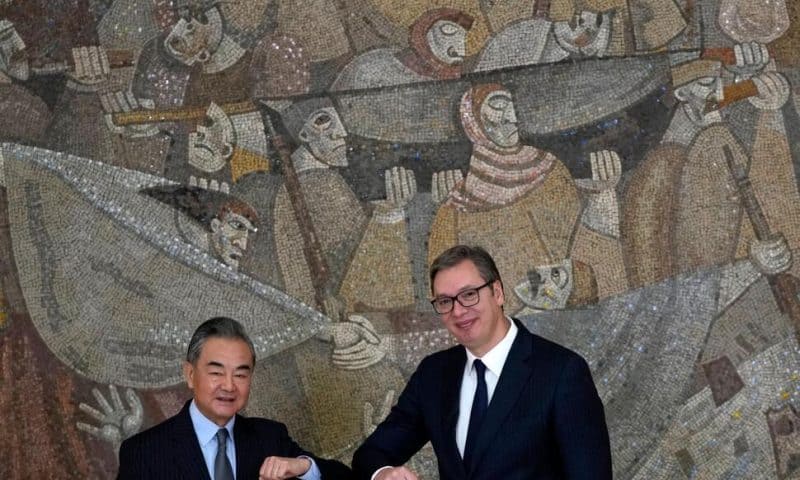Serbian officials have praised the “steel friendship” with China during talks with China’s foreign minister.
BELGRADE, Serbia — Serbian officials praised their “steel friendship” with China during talks on Thursday with China’s Foreign Minister Wang Yi amid fears in the West that by heavily investing in the Balkan state, Beijing is trying to exert its political influence in that part of Europe.
Serbia, a European Union candidate country, and China have rapidly intensified economic and political relations in recent years, with Chinese companies taking over Serbia’s main copper and steel mills and building roads, factories and railway lines.
Chinese state banks have granted billions of dollars in loans to the Balkan country for the construction projects that are mostly conducted by Chinese workers.
China, which considers Serbia a major entry point to Europe for its Belt and Road economic and political initiative, has also been exporting drones and other military equipment to Serbia, as well as increasing police and state security cooperation.
Between 2005 and 2019, China is estimated to have invested about $10 billion in Serbia.
“In the political sphere, we don’t have any open issues,” Serbian President Aleksandar Vucic told Wang at the opening of their meeting in Belgrade. “We have very good cooperation between our countries and we want to bring it to a higher level if possible.”
“Our friendship is honest and big and no wonder we call it ‘steel,’” Vucic said, adding that the economic cooperation increased threefold in the last five years.
China bought Serbia’s only steel mill in 2016 and both sides have often described their relations as friendship of steel.
Wang said Thursday that the friendly relations between China and much smaller Serbia are based on equality and are sincere. “We are very proud of the development of our relations,” he said.
There is criticism in the West and among Serbia’s opposition groups that many of the construction deals between Serbia and China are done in an nontransparent manner, without proper tenders or details about the costs.
Also, environmentalists have warned that coal powered plants operated by Chinese companies in Serbia do not meet international greenhouse emissions standards, further contributing to Serbia becoming one of the most polluted states in Europe.
Although formally seeking EU membership, the populist Serbian president has been forging close political, economic and military ties with both China and Russia.

